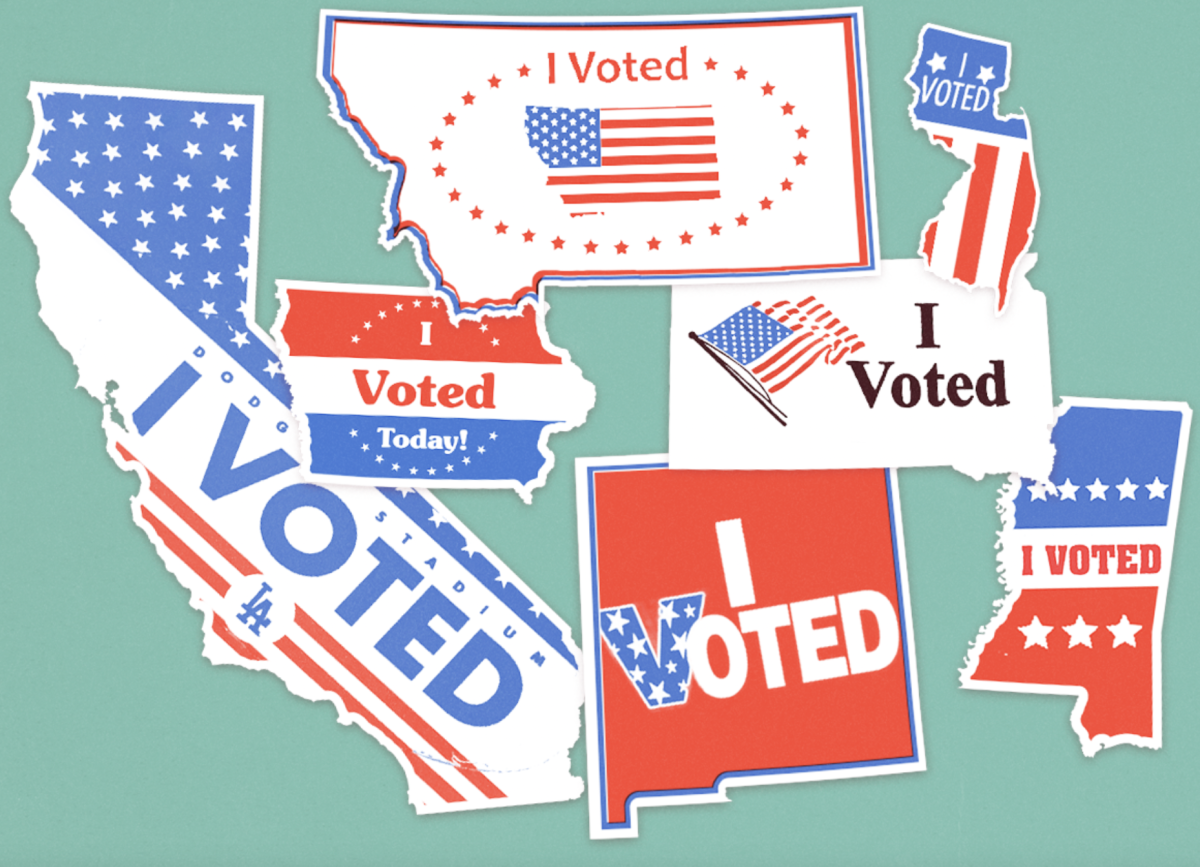2024 is election season. Every four years, the presidential election takes place. Though the actual election is only one day in November, did you know that the campaigning process and the election process takes almost 11 months in total? Let’s dive in as we learn more about the process of electing our future president and how we can partake and participate in our American democracy.
The election process starts with something called primaries or caucuses. A primary or caucus takes place during the initial steps to nominating a president. A primary election or caucus happens well before the actual, or general, election in November (they start in January with New Hampshire and Iowa being the first states). The purpose of a primary election is to decide and choose a candidate in each party to run for president. Currently, there are two main parties in the United States of America. The Democratic party is the liberal party of the United States and its presidential nominee is Joseph Biden, the current president of the United States. The other main party, the Republican party, currently has one candidate up for running: Donald Trump.
So, what is the difference between a primary and a caucus? Both serve the same purpose: choosing the singular nominee for a party. A primary is when a voter goes into a private setting and votes for the candidate they want to represent their party. A caucus, on the other hand, is when voters all come together in a public setting and split into groups. They then discuss who they want to vote for in these groups and at each caucus location, a candidate is chosen to represent their respective party. Mrs. Hornby, teacher of American government and politics, explains that most students are “unsure of who can participate during the primary election season.” A primary OR a caucus takes place in each state. However, it is up to states to decide how its primary election or caucus operates. “Will the primaries be closed (open to only voters of one party) or open (all registered voters can vote in a state’s primary, regardless of party affiliation)? Will a caucus be held in place of a primary election?” These questions are decided by the states and they then decide a day to hold their primary or caucus. For the state of New Jersey, you must declare your party affiliation before you can vote in a primary election or take part in a caucus. You can change your party affiliation in New Jersey up until April 10 (New Jersey’s primary election is June 4 this year).
What do the winners of a primary election or caucus get? When a state declares a winner for their party, then they receive a number of delegates (real people!). All of these delegates come together in August when all the primaries are over at a party’s convention. These delegates then formally cast their vote for the candidate who won their state. After winning the party’s nomination, the candidate is then the sole person who represents that party in the general election in November. The general election takes place on Election Day (Nov. 5 this year) and our next president is chosen through a process called the Electoral College.
Why should I even participate in a primary or caucus? Mrs. Hornby explains that so many students and Americans want to see real change in the world and in America. They want their voices to be represented in the American government. She notes, “How often have you heard someone complain that they don’t like any of the candidates on the ballot and as a result, they will either forgo voting or vote for the lesser of two evils?” So many voters nowadays are starting to feel that their vote may not count as much. But, Mrs. Hornby emphasizes that participating during the primary season and in one’s local politics in general is important and allows one to understand the democratic process of our country. She notes, “If we want to see candidates who more closely reflect us, our views, our values, and our vision for the future, then we can’t take a backseat and allow others to determine who gets to run in the final race for the White House every four years.” Learning about primaries and caucuses helps voters better understand the election process and how we, as citizens, can affect the outcome of an election from an early stage. The primary election is when we get to choose our future candidates for president, thus it is important to learn about the rules regarding primaries and caucuses and also participate in them!
Where can I find more information on voting? It is important that American citizens 18 or older exercise their right to vote and get out to vote! “Voting is your way to communicate with all elected officials (local, state, and federal),” Mrs. Hornby notes. “It’s the strongest link we have with the political parties and those who hold elected office. The more people who get out and vote, the stronger the collective message will be, and in turn, the more likely it is that elected officials will hear you.” Voting is your way to directly impact these elected offices and support candidates who reflect your views, values, and causes that are important to you. If you are not registered, do not know what your voting location is, or would like to request an absentee ballot because you will be on vacation or in college, you can find all the information you need on the NJ Voter Information Portal. This portal has all the information spelled out for anyone who may have questions about registering to vote, where to vote, or how to vote. You can find the Portal at the following link: https://www.nj.gov/state/elections/vote.shtml.


